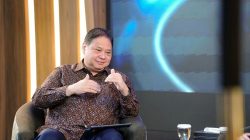Clarifying the New Education Reforms in Sri Lanka
Sri Lanka has recently introduced a series of new education reforms aimed at reshaping the curriculum and enhancing the overall learning experience for students. These changes have sparked discussions and, in some cases, confusion among educators and the public. In response to this, the Prime Minister of Sri Lanka, Dr. Harini Amarasuriya, took the opportunity to address concerns and clarify the true intentions behind the reforms.
During a special program held at the Western Provincial Council Auditorium, the Prime Minister emphasized the importance of preventing the spread of false information regarding the new education policies. She specifically highlighted that claims suggesting the removal of history and aesthetics subjects are entirely inaccurate. According to her, these subjects remain an essential part of the curriculum, and the reforms have been designed to ensure that all students continue to study them.
Addressing Misinformation
Dr. Amarasuriya pointed out that some groups have been spreading misleading information about the new education reforms. She noted that these claims often come from individuals who have not thoroughly reviewed the national education plan. The Prime Minister stressed that the reforms were developed after extensive discussions with subject experts, with the goal of ensuring that every student has access to a well-rounded education.
She explained that the inclusion of history and aesthetics is not only maintained but also reinforced in the new curriculum. These subjects play a crucial role in fostering human values and critical thinking among students. The Prime Minister reiterated that while political discourse is inevitable, it should not interfere with the educational process or the lives of children.
Focus on Holistic Development
The new education reforms emphasize a more holistic approach to learning. Rather than focusing solely on academic performance, the reforms aim to produce well-rounded students who can thrive in various fields. This includes integrating vocational studies into the curriculum, which provides students with practical skills alongside traditional academic subjects.
The Prime Minister highlighted that the reforms were implemented with a clear understanding of the needs of modern education. By incorporating diverse subjects, the government aims to equip students with the knowledge and skills necessary to succeed in an ever-changing world. This approach ensures that students are not limited to a single area of study but are encouraged to explore multiple disciplines.
Encouraging Transparency and Awareness
In her address, Dr. Amarasuriya urged all stakeholders, including educators and parents, to be informed about the new education reforms. She encouraged those who understand the changes to share accurate information with their communities. This call for transparency is essential in countering misinformation and promoting a better understanding of the reforms.
The Prime Minister also emphasized the importance of maintaining the integrity of the education system. She warned against any attempts to politicize education, stressing that the focus should remain on the welfare and development of students. By keeping politics separate from education, the government hopes to create an environment where students can learn without external pressures.
Conclusion
The new education reforms in Sri Lanka represent a significant step towards a more inclusive and comprehensive educational framework. While there may be initial concerns and misunderstandings, the Prime Minister’s statements serve as a reminder of the commitment to transparency and accuracy. As the implementation of these reforms progresses, it is crucial for all members of society to stay informed and support the goals of creating a robust and equitable education system for future generations.







